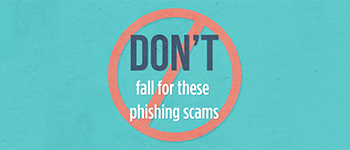Enhanced security credit and debit chip cards are being rolled out to consumers as a powerful new defense against fraud and counterfeiting.
These cards contain an embedded computer chip that is personalized for your account and every in-person transaction generates a unique code, making them more secure by adding this extra safeguard against unauthorized use.
But scammers are taking advantage of this important card changeover by using this as an opportunity to phish for your sensitive information by posing as your card issuer.
The Federal Trade Commission is warning people to be on the lookout for any unsolicited emails or phone calls asking for information related to any of your debit of credit cards, or accounts tied to those cards.
The scammers send official-looking email or make official-sounding telephone calls telling you that they need to confirm personal information before they can send your new enhanced security chip card.
Don’t fall for these phishing scam attempts.
Providing personal information about your account number or yourself can lead to identity theft, and clicking on links in an email can install malware on your computer.
Here is some advice from experts about how to avoid these chip card scammers:
- Don’t provide any information about your account, user name, password, or things like a Social Security number online. The FTC says your official credit and debit card issuers have no need to contact you by phone or email to get personal information before sending you a chip card.
- Call the toll-free number on the back of your credit or debit card if you have any concerns about a request for personal information. Speak to an official customer representative and explain the reason for your call.
- Don’t click on links in email from unknown sources, even if the email looks official. Experts say it’s always better to actually type in the web address of your financial institution so you know you are at the official website.
- Regularly monitor your card accounts online to check for unexpected transactions, and check your credit report for unexplained credit requests or errors.
It’s important to know that your credit or debit card issuers will send your enhanced security chip card without asking for personal information.
Check out the video below to learn more about how you can avoid chip card phishing scams and better protect yourself from cyber criminals.

